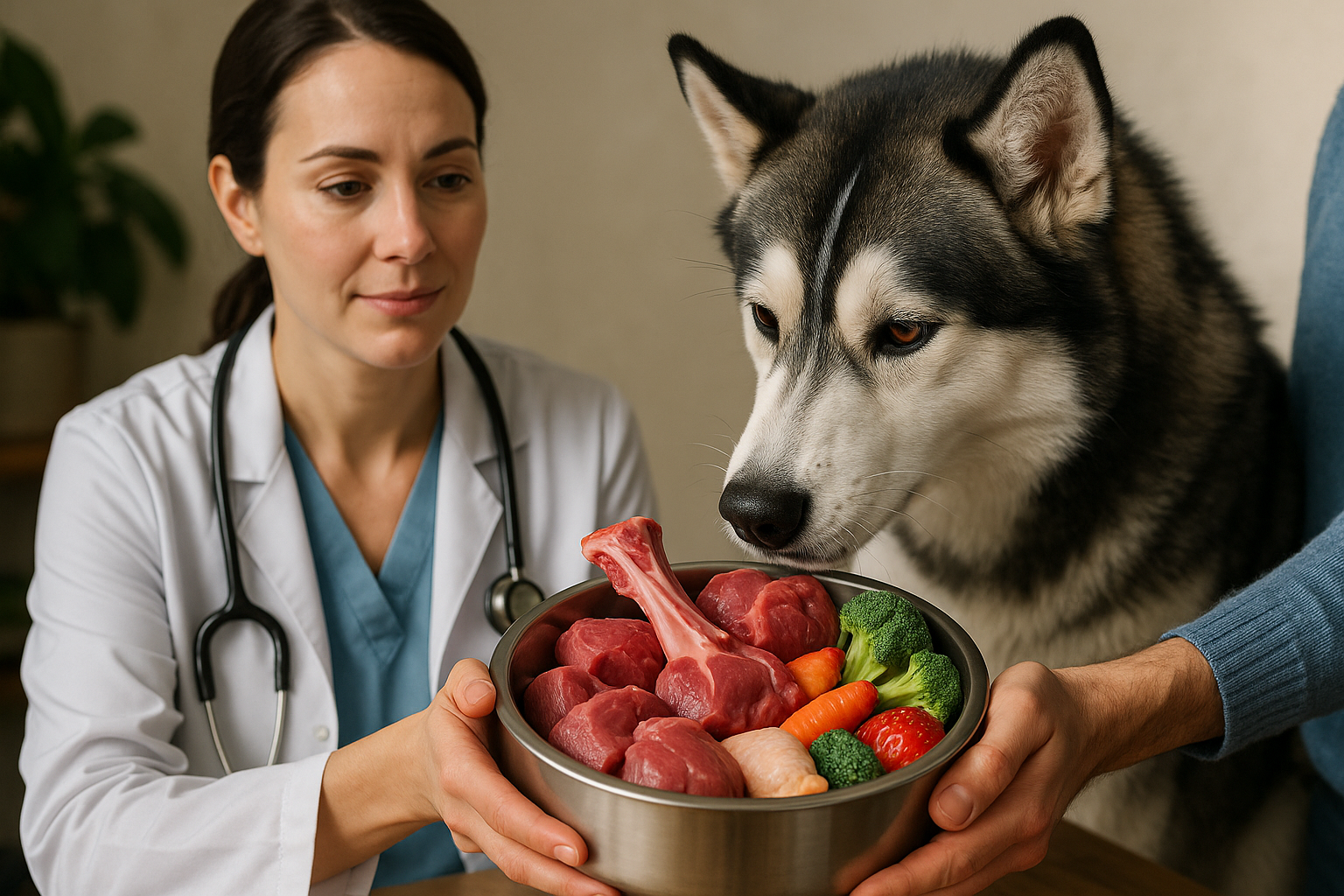Harmful Foods Dogs Should Avoid Eating in the United States in 2025
Did you know many common foods can cause serious health issues for dogs? Being informed about these harmful items is crucial to prevent digestive problems, toxicity, and long-term complications that can seriously affect a dog's overall health and well-being.

Why Certain Human Foods Are Dangerous to Dogs
Dogs metabolize and react to foods very differently than humans. Some foods contain substances that are toxic to dogs’ systems, damaging organs, triggering allergic reactions, disrupting metabolism, or causing physical harm. Even small amounts of these foods can quickly lead to severe symptoms or emergencies. Immediate veterinary care is often required after ingestion.
Below is a comprehensive guide to the most harmful foods dogs should not eat in the United States as of 2025, including symptoms of poisoning and why each is dangerous.
Alcohol and Alcohol-Containing Foods
Alcohol is highly toxic to dogs. Even small quantities of alcoholic beverages or foods containing alcohol can cause:
- Vomiting and diarrhea
- Lack of coordination and depression
- Difficulty breathing and tremors
- Depression of the central nervous system, coma, or death
Alcohol is rapidly absorbed into a dog’s bloodstream and affects their vital organs quickly. Dogs may also unintentionally consume alcohol from unexpected sources such as fermented or rotten fruits like apples. If you suspect your dog has ingested alcohol, seek veterinary care immediately.
Chocolate, Coffee, and Other Caffeine-Containing Products
The toxic ingredients in chocolate and caffeine-containing products are methylxanthines (theobromine and caffeine). These substances affect a dog’s heart and nervous system, causing:
- Vomiting and diarrhea
- Increased thirst and urination
- Hyperactivity and restlessness
- Rapid or irregular heart rhythms
- Muscle tremors, seizures, and possible death
Dark chocolate and baking chocolate contain the highest levels of methylxanthines, making them more dangerous than milk or white chocolate. Coffee, caffeinated sodas, energy drinks, and even caffeine tablets are also harmful to dogs and must be kept completely out of reach.
Grapes, Raisins, Currants, and Sultanas
Grapes and dried forms like raisins and currants can cause acute kidney failure in dogs. The exact toxin is unknown, but the consequences are serious:
- Early signs: vomiting, increased thirst, and increased urination
- Progression: reduced urine output, lethargy, weight loss
- Outcome: kidney failure, which can be fatal without treatment
No amount is considered safe, and sensitivity varies greatly. Avoid feeding any form of these fruits to dogs.
Xylitol – A Dangerous Artificial Sweetener
Xylitol is found in sugar-free gum, candies, some brands of peanut butter, toothpaste, and other processed foods. In dogs, xylitol triggers:
- A massive release of insulin leading to rapid hypoglycemia (low blood sugar)
- Symptoms: vomiting, weakness, seizures, collapse, and coma
- Liver damage and potential liver failure
Because xylitol can cause life-threatening symptoms quickly, always check ingredient labels and avoid feeding dogs any products that might contain this sweetener.
Onions, Garlic, and Related Products
All forms of onions and garlic—including powder, raw, cooked, or powdered additives—can damage dogs’ red blood cells leading to anemia. Effects include:
- Weakness, lethargy, pale gums
- Increased heart and respiratory rates
- Potentially life-threatening anemia
Even small amounts, like half an onion in a small dog, can be harmful. Avoid foods seasoned or cooked with onion or garlic.
Raw Yeast Dough and Bread Dough
Raw yeast dough is dangerous due to two reasons:
- It expands in the dog’s stomach causing painful gas buildup and potentially life-threatening bloat or twisting of the stomach (gastric dilatation-volvulus).
- Yeast fermentation produces alcohol inside the digestive system causing similar toxic effects to direct alcohol ingestion.
Signs of distress include abdominal pain, restlessness, and vomiting. Immediate veterinary evaluation is needed.
Raw Meat, Raw Eggs, and Bones
Raw animal products carry several risks:
- Bacterial contamination by Salmonella, E. coli, and others causing gastrointestinal illness in dogs and humans.
- Raw eggs contain avidin, which reduces absorption of biotin, potentially leading to skin and coat problems with long-term feeding.
- Bones (both cooked and raw) can cause cracked teeth, choking, gastrointestinal obstruction, or internal perforation requiring emergency surgery.
Avoid feeding raw meat, eggs, and all types of bones to dogs.
Macadamia Nuts
Macadamia nuts are toxic to dogs and can cause:
- Vomiting and diarrhea
- Weakness and wobbly gait
- Muscle tremors and fever
While rarely fatal, symptoms are distressing and require veterinary care.
Dairy Products
Most dogs are lactose intolerant because they lack sufficient lactase enzyme to digest lactose in milk, cheese, or yogurt. Consumption often leads to:
- Diarrhea
- Bloating and excessive gas
- Digestive upset
Milk and dairy should either be avoided or offered in very small amounts if the dog tolerates them.
Excessive Salt and Salty Foods
High salt intake can cause salt poisoning, which manifests as:
- Vomiting and diarrhea
- Tremors, seizures, and even death if untreated
Dogs with certain health conditions, like heart or kidney disease or epilepsy (especially those on potassium bromide), are more vulnerable to salt toxicity. Keep salty human foods and salt-laden treats like homemade salt dough far from dogs.
In 2025, awareness of potentially harmful foods for dogs is more important than ever. Dog owners should strictly avoid feeding any alcohol, chocolate, caffeine, grapes, xylitol, onions, garlic, raw yeast dough, raw meat and eggs, bones, macadamia nuts, excessive salt, and most dairy products to their pets. Preventing access to these foods and understanding early symptoms of poisoning greatly increases the chances of a safe outcome.
If your dog accidentally consumes any of these foods, immediate consultation with a veterinarian or poison control is critical. In the United States, the ASPCA Poison Control Center can be contacted at (888) 426-4435 for expert guidance.
Caring for your dog’s diet by excluding dangerous human foods supports your furry friend’s health, vitality, and longevity throughout 2025 and beyond.
Sources
- ASPCA - People Foods to Avoid Feeding Your Pets
- WebMD - Foods Your Dog Should Never Eat
- The Vets - Toxic Foods for Dogs
Disclaimer: All content, including text, graphics, images and information, contained on or available through this web site is for general information purposes only. The information and materials contained in these pages and the terms, conditions and descriptions that appear, are subject to change without notice.



